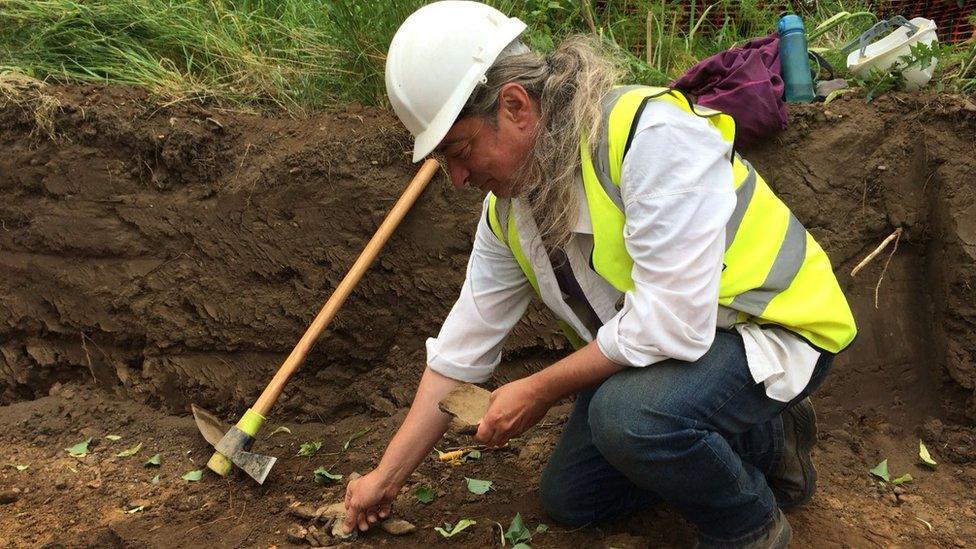Prehistoric monument found on Biddenham housebuilding site
- Published
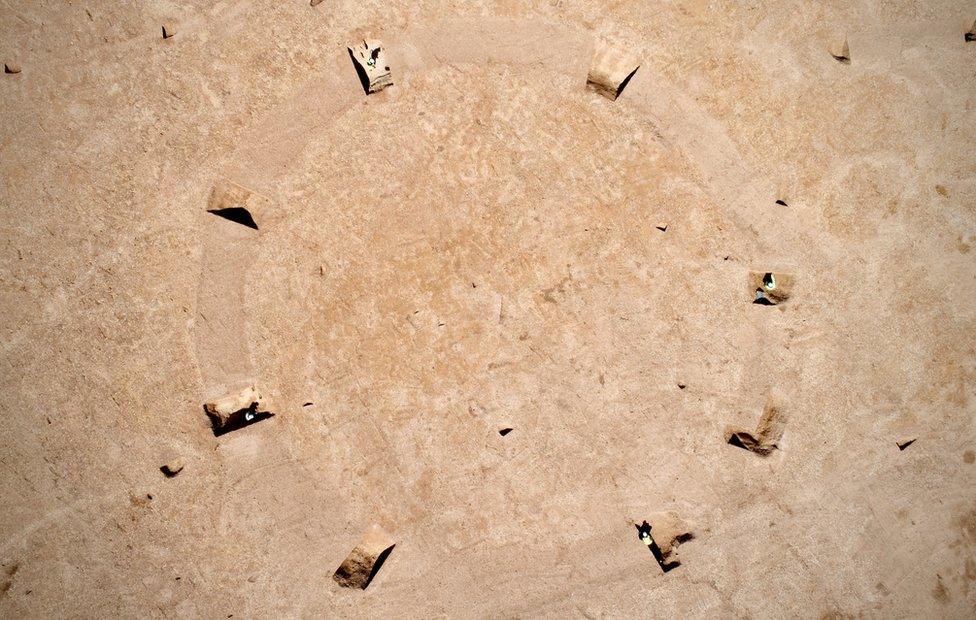
The Neolithic or early Bronze Age monument has been investigated by archaeologists
An "exciting" discovery of a Neolithic or early Bronze Age monument has been unearthed in an archaeological dig.
Albion Archaeology made the find in a field in Biddenham, just outside Bedford, where homes are to be built.
Project manager Iain Leslie said an Iron Age settlement and Anglo-Saxon remains were also discovered.
"This level of investigation of a particular area is relatively rare and offers a unique opportunity to better understand our ancestors," he said.
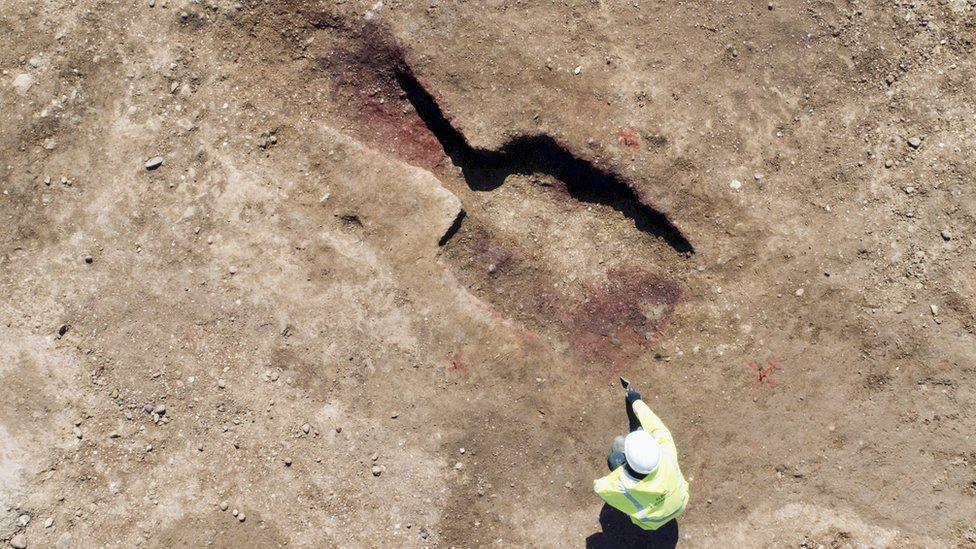
An ancient oven was found during the dig
The monument is among the earliest remains on the site. It would have formed part of a wider landscape of similar monuments known to have existed locally within a loop of the river Great Ouse, Mr Leslie said.
It is thought to have been constructed about 6,000 years ago and likely "provided a focus for ceremonial and ritual activities," he added.
Evidence of an Iron Age settlement was also found, including several storage pits and a roundhouse.
"The most unexpected discovery was the presence of relatively extensive Anglo-Saxon remains" with a "sunken-featured building" and an oven, Mr Leslie said.
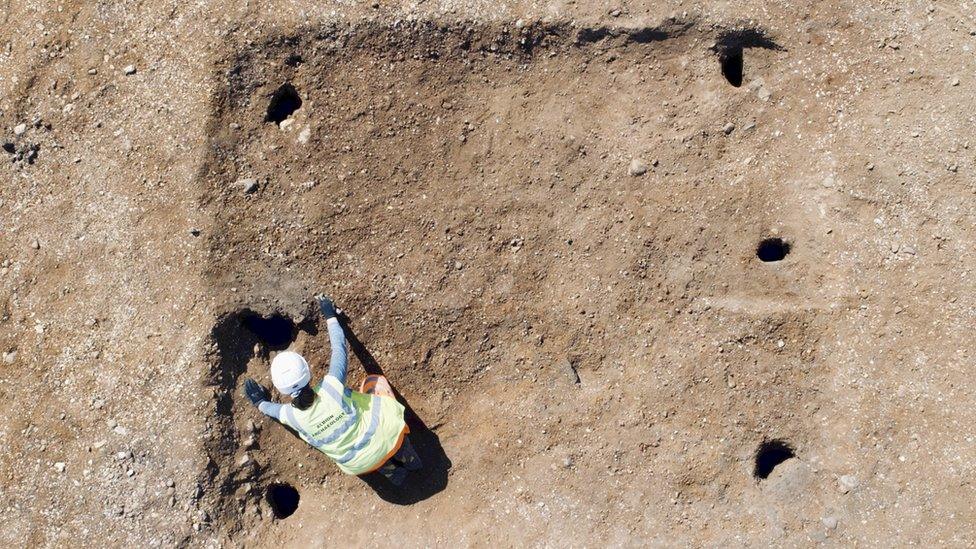
The Anglo-Saxon "sunken-featured building" provided evidence about those who lived at the site
"As archaeologists we are very excited about the findings," he said.
"We are building up a really fascinating picture of the various stages of past occupation in this area.
"The remains uncovered are of at least regional significance."
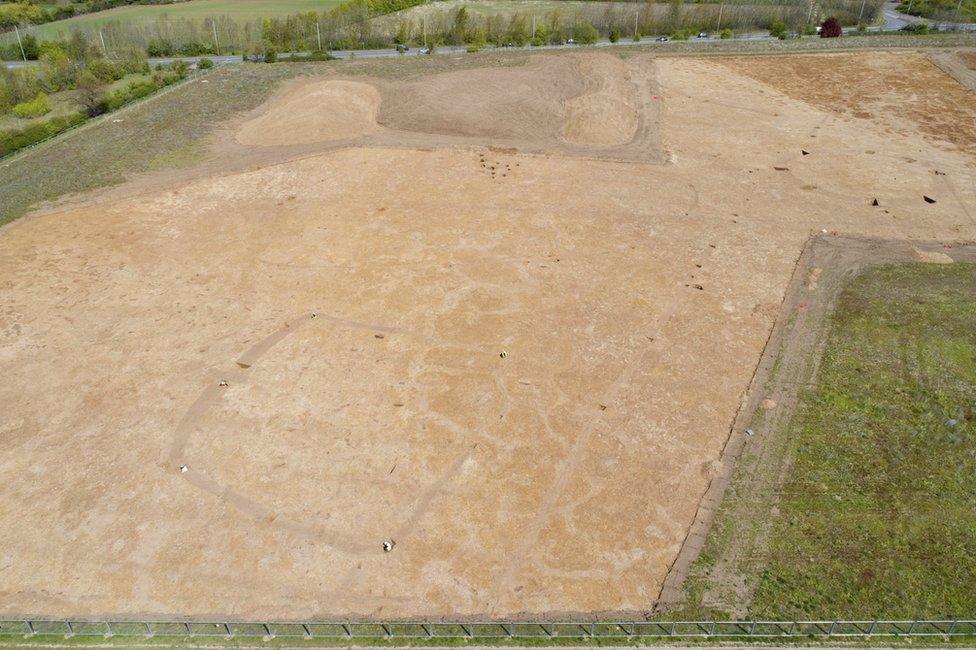
Homes will be built on the field, which is just off the A428 by Biddenham
Mr Leslie added: "The investigations have revealed a wealth of information about the previous inhabitants of the area, stretching back as much as 6,000 years.
"The remains offer a fantastic addition to our knowledge of Neolithic, early Bronze Age, Iron Age and Anglo-Saxon settlement in the area."
The investigations are being carried out in conjunction with RPS Consulting Services, on behalf of builders Dandara.
Planning consent was given with a condition that an archaeological dig was to take place, with the findings recorded before construction could start.
Chris Higgins, from Dandara, said: "It's great to have an advanced understanding of such key periods of history and to have a unique opportunity to appreciate the historical importance of the site."
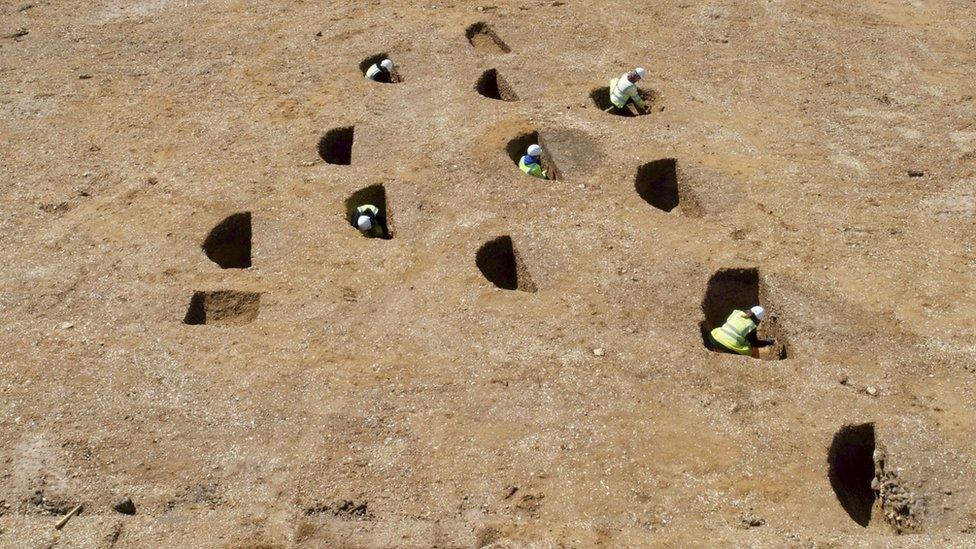
Middle to late Iron Age pits were among the finds

Find BBC News: East of England on Facebook, external, Instagram, external and Twitter, external. If you have a story suggestion email eastofenglandnews@bbc.co.uk, external
Related topics
- Published27 June 2021
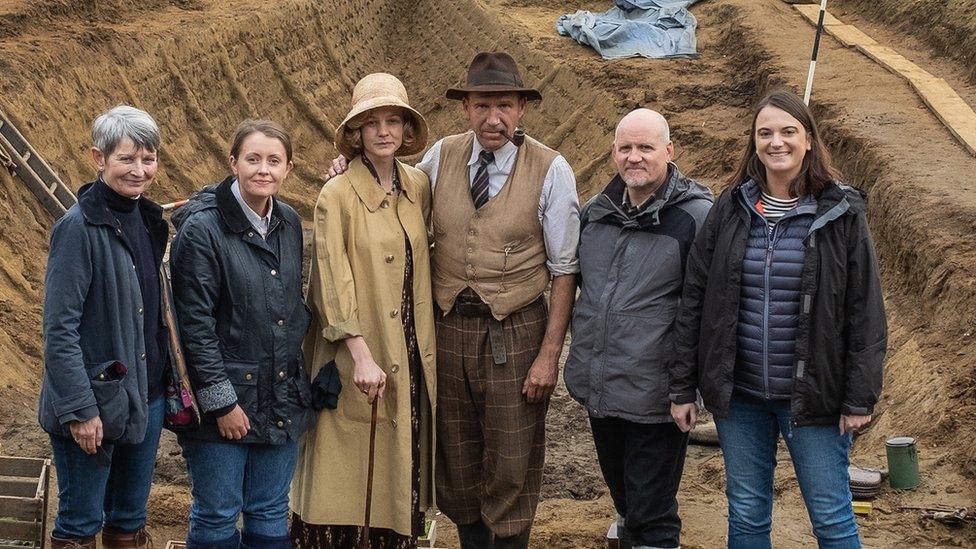
- Published18 June 2021

- Published5 May 2021
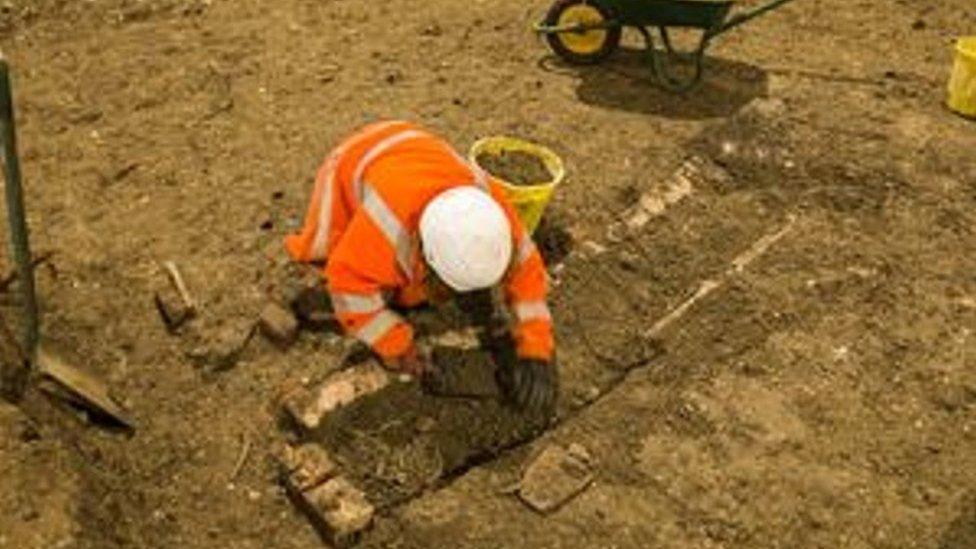
- Published13 August 2018
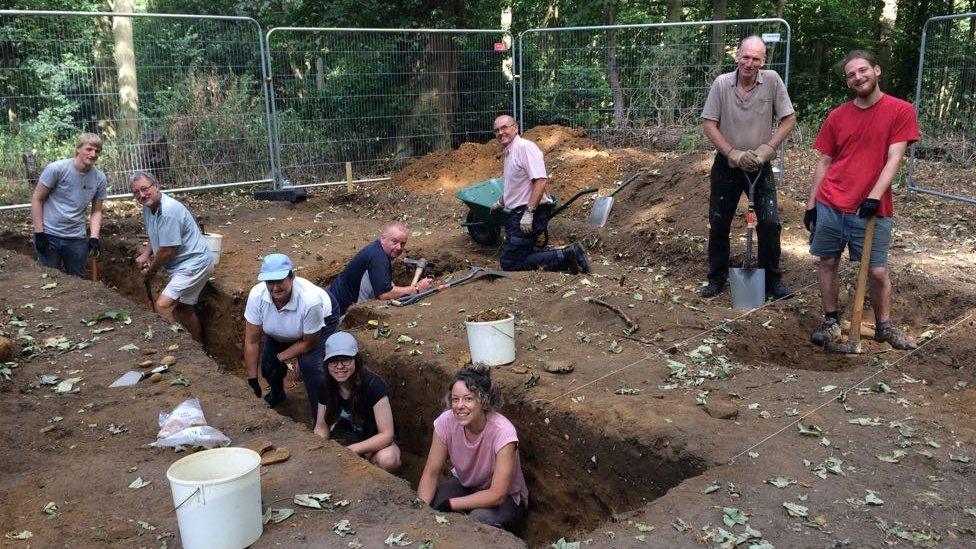
- Published16 June 2018
